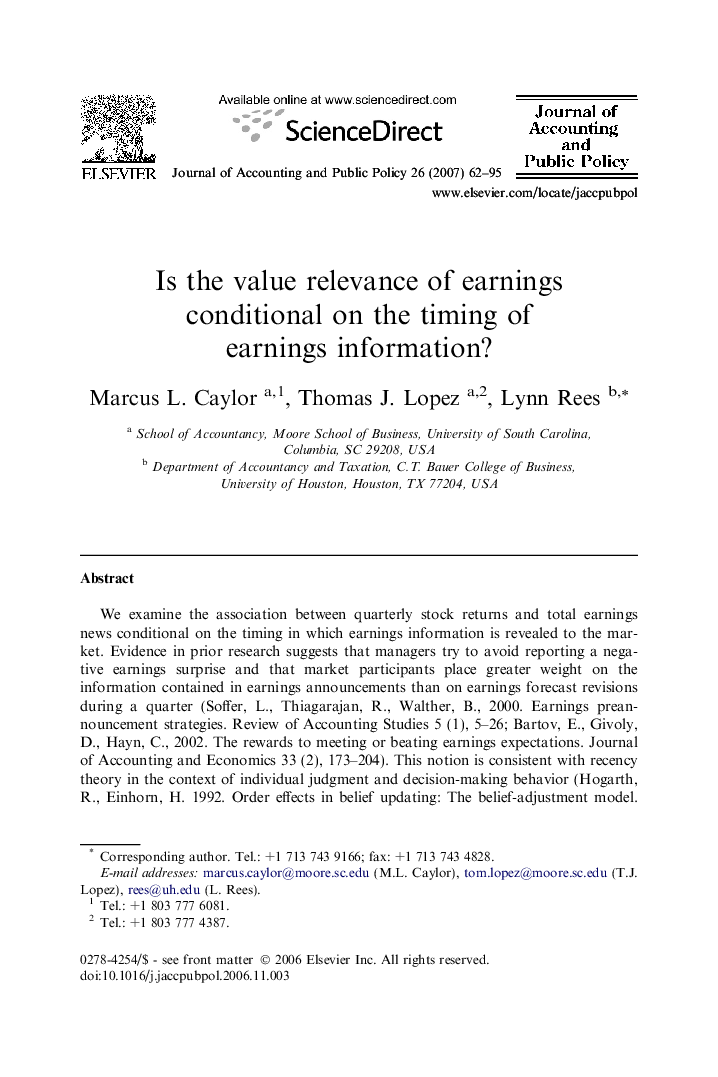| Article ID | Journal | Published Year | Pages | File Type |
|---|---|---|---|---|
| 1006220 | Journal of Accounting and Public Policy | 2007 | 34 Pages |
We examine the association between quarterly stock returns and total earnings news conditional on the timing in which earnings information is revealed to the market. Evidence in prior research suggests that managers try to avoid reporting a negative earnings surprise and that market participants place greater weight on the information contained in earnings announcements than on earnings forecast revisions during a quarter (Soffer, L., Thiagarajan, R., Walther, B., 2000. Earnings preannouncement strategies. Review of Accounting Studies 5 (1), 5–26; Bartov, E., Givoly, D., Hayn, C., 2002. The rewards to meeting or beating earnings expectations. Journal of Accounting and Economics 33 (2), 173–204). This notion is consistent with recency theory in the context of individual judgment and decision-making behavior (Hogarth, R., Einhorn, H. 1992. Order effects in belief updating: The belief-adjustment model. Cognitive Psychology 24 (1), 1–55). We extend prior research by investigating the descriptive validity of recency theory to a comprehensive set of potential earnings paths. Our evidence suggests, contrary to conclusions in the prior literature, that investors do not always assign more weight to earnings surprises than to analyst forecast revisions. Rather, our results suggest that the market response to earnings news is more consistent with prospect theory, an alternative cognitive psychology theory developed by Kahneman and Tversky (1979. Prospect theory: An analysis of decisions under risk. Econometrica 47 (2), 263–292).
